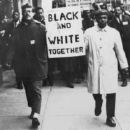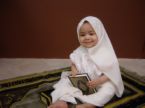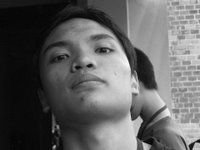“Was the secret merely the tincture barely tinting the coloration of the man’s total being or was the totality of his being nothing but a tincture in the shoreless sea of a lifelong secret? Did he relax his vigilance, or was it like being a fugitive forever?”
(from The Human Stain by Philip Roth)
“MAY kuwento ako sayo…
“I’m gay.”
It came out of the blue. We were sitting in the smokers’ pocket garden. I think we were talking about what our next classes were when she said this to me.
I remember her mentioning to me a few weeks before after one of our classes that she was meeting up with her “girlfriend,” so the fact that she was a lesbian wasn’t so surprising.
Perhaps it was how she said it that surprised me—as if she had to get that fact out of the way, as if it was potentially a ground for misunderstanding.
People make a big deal about these sorts of proclamations or announcements—“coming out” as they have coined it. Look how many headlines Lance Bass, formerly of N’SYNC, got when he announced he was gay. (Tanong ko lang: hindi ba obvious noong dati pa?)
It’s interesting what people have to do to get discomfort (brought about by who they are) out of the way. It’s telling, perhaps, of the inner dialogue they have, which is started by perception brought unto them by society.
That girl, my friend, relating to me something we have in common—an attraction to women—was expressing her inner dialogue, her coming to terms with herself. She’s very confident and self-aware. The significance of her sexual preference to her is probably magnified because of society’s views on homosexuality.
Calling the inner dialogue “insecurity” would overly simplify an issue that goes beyond personal persecution. Its complexity involves family, values, politics, religion—basically all major institutions in society.
But why?
She is who she is. That should be it.
I have a gay uncle whose mother (kapatid ng lola ko) is still in denial about his sexuality. Whether gay or not, whether lawyer or farmer, whether fat or skinny, whether fair-skinned or dark, he is still her son. Those other things shouldn’t matter.
Lola naman… anak mo yan!
Coleman Silk, the protagonist of Philip Roth’s The Human Stain, spent his entire adult life denying his being African-American. He claimed that he was a Jew in order to get ahead in life in a time and in a country where racial discrimination was (and still is) a big deal.
Silk thought that he was outsmarting society, but society was truly playing tricks on him by making him deny who he was. He thought he was helping himself. He was actually losing himself.
Inner dialogues lead to existential questions and statements that are only made difficult because of society’s norms and judgmental ways.
We all have those statements in us, the results of our inner dialogues, the synthesizing of our coming to terms with who we are. Many don’t have the courage to actually say them. But why does the world have to present the possibility of fear in the first place?
I’m a Catholic. As my parents both worked, I was raised by our Muslim maids in the predominantly Islamic country of Indonesia. I’ve never had any problems with any of the Muslims I’ve grown up around. I owe them a lot. My family and I have shared in their Islamic festivities as they’ve shared in our Christian celebrations.
We’re all people. And regardless of what categories we belong to, people are generally good.
Hi. I’m Martin.
Who I am is who I am.
That’s it. That should be it.
Life in this world is not that simply. Unfortunately.





0 Comments:
Post a Comment
<< Home